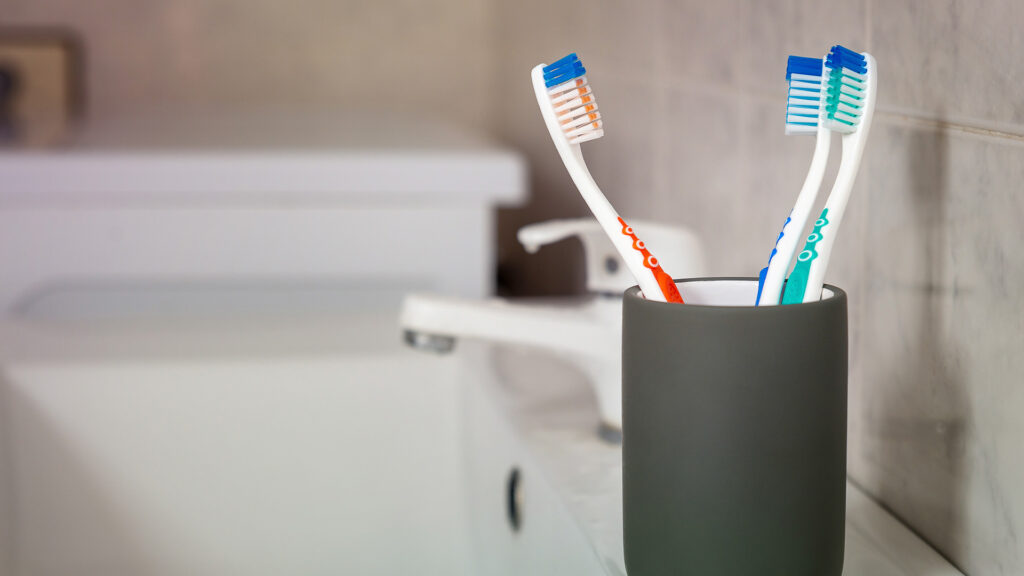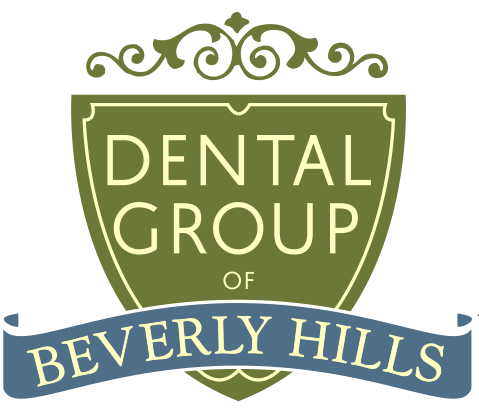Effective tooth brushing is more than just a routine task; it serves as a cornerstone for maintaining excellent oral health and overall well-being. The impact of proper brushing extends beyond simply cleaning teeth; it influences the prevention of various oral diseases and contributes to a healthier body. By exploring the intricacies of how tooth brushing enhances oral health, one can uncover a wealth of benefits that go far beyond a sparkling smile.
Key Takeaways
Regular brushing complements oral hygiene practices.
- Proper tooth brushing prevents tooth decay and gum disease.
- Enhances fresh breath and aesthetic appeal.
- Reduces the risk of systemic health issues.
- Contributes to overall well-being and quality of life.

The Connection Between Oral Health and Overall Well-Being
Maintaining good oral health is not only essential for a healthy smile but also for overall well-being.
Research has shown a strong connection between oral health and systemic health, highlighting the importance of regular dental care.
Impact of Oral Health on Systemic Health
Improving oral health not only promotes a healthy mouth but also plays an essential role in influencing overall systemic well-being. Research has shown a strong connection between oral health and systemic health, highlighting the impact of oral health on the body as a whole.
Gum disease, caused by bacteria in the mouth, particularly periodontal disease, has been linked to various systemic conditions such as cardiovascular disease, diabetes, and adverse pregnancy outcomes.
Maintaining good oral hygiene through regular brushing, flossing, and dental check-ups can help prevent gum disease and reduce the risk of systemic health issues. Dentists play an important role in educating patients about the importance of oral health and its implications on overall well-being.
The Role of Oral Hygiene in Preventing Disease
How important is the relationship between oral hygiene and overall well-being in preventing disease?
Maintaining good oral health through proper brushing and hygiene practices plays an essential role in preventing various diseases and promoting overall well-being. Poor oral hygiene, such as inadequate tooth brushing and not flossing regularly, can lead to gum disease, tooth decay, and other oral health issues. These oral health problems are not only confined to the mouth but can also have systemic effects on overall health.
Research suggests a strong association between gum disease and certain systemic diseases like diabetes, heart disease, and respiratory infections. By improving oral health through regular brushing, flossing, and dental check-ups, individuals can reduce the risk of developing such conditions.
Proper oral hygiene is not just about maintaining a healthy smile; it is about safeguarding one’s overall health and well-being. Therefore, prioritizing oral health care is essential for preventing disease and enhancing overall quality of life.

Fundamentals of Proper Tooth Brushing
To maintain ideal oral health, it is essential to understand the fundamentals of proper tooth brushing.
Recommended brushing techniques and the ideal brushing frequency play a significant role in preventing tooth decay and gum disease.
Recommended Brushing Techniques
Effective tooth brushing depends heavily on utilizing proper techniques to guarantee thorough cleaning of all tooth surfaces. Brushing is a fundamental aspect of maintaining good oral health and should be accompanied by daily brushing and flossing to ensure proper oral care.
Incorporating appropriate brushing techniques into one’s oral care routine is essential for promoting ideal oral hygiene and overall well being.
When it comes to brushing techniques, it is vital to use gentle circular motions and to brush all tooth surfaces, including the front, back, and chewing surfaces. Holding the toothbrush at a 45-degree angle towards the gum line helps in removing plaque and food particles effectively.
Additionally, using a soft-bristled toothbrush can strike a healthy balance between removing debris and protecting the gums from damage.
Optimal Brushing Frequency
Maintaining proper oral hygiene includes understanding the ideal brushing frequency to guarantee effective plaque removal and overall oral health. Brushing and flossing regularly keeps a healthy balance in the mouth, preventing issues like cavities, gum disease, and bad breath.
Good oral health can greatly improve overall well being, as it not only reduces the risk of oral infections but also contributes to better systemic health.
Brushing is recommended at least twice a day, in the morning and before bedtime, using fluoride toothpaste and a soft-bristled brush. Proper oral hygiene also includes flossing at least once a day to remove plaque and food particles between teeth that brushing alone cannot reach.
Consistent and proper oral care not only helps to promote good oral health but can also have positive effects on one’s overall wellbeing.
Tools and Products for Effective Brushing
When it comes to maintaining good oral hygiene, selecting the appropriate toothbrush is essential.
Additionally, using a fluoride toothpaste can greatly benefit your dental health.
These two key components play an important role in ensuring effective brushing practices for excellent oral hygiene.
Choosing the Right Toothbrush
How can one guarantee excellent oral hygiene through the selection of the most suitable toothbrush?
The choice of toothbrush plays an important role in maintaining proper oral health and preventing gum disease. When selecting a toothbrush, it is essential to take into account factors such as the size of the brush head, bristle texture, and handle grip.
A toothbrush with a small head allows for better access to hard-to-reach areas in the mouth, ensuring a more thorough clean. Soft bristles are gentle on the gums and enamel, reducing the risk of damage during brushing.
Additionally, a comfortable handle grip promotes proper brushing technique and enhances overall oral care.
Choosing the right toothbrush is necessary for effectively removing plaque, food particles, and bacteria that can lead to gum disease and other oral health issues. By selecting a toothbrush that meets individual needs and preferences, one can enhance their oral hygiene routine and contribute to better overall well-being.
Importance of Fluoride Toothpaste
To promote excellent oral health, incorporating fluoride toothpaste into one’s dental hygiene routine is essential for effective brushing and cavity prevention. Fluoride is a key ingredient in toothpaste known for its ability to strengthen tooth enamel, making it more resistant to decay caused by acids produced by bacteria in dental plaque.
When used regularly as part of a good oral hygiene regimen that includes proper tooth brushing techniques, fluoride toothpaste plays a vital role in maintaining dental health and preventing cavities.
The benefits of fluoride toothpaste extend beyond just cavity prevention. It also helps in remineralizing areas of teeth that have been affected by early stages of tooth decay, potentially reversing the damage. By incorporating fluoride toothpaste into your dental care routine, you are taking proactive steps to protect your teeth and maintain a healthy smile.
Benefits of Regular Tooth Brushing
Regular tooth brushing offers a multitude of benefits for oral health. It plays a key role in preventing tooth decay and gum disease, safeguarding the overall health of the mouth.
Additionally, consistent brushing contributes to fresh breath and helps maintain a visually appealing smile, enhancing one’s confidence and self-esteem.
Prevention of Tooth Decay and Gum Disease
Maintaining good oral hygiene through consistent and thorough tooth brushing is essential for preventing tooth decay and gum disease. Proper oral health practices, such as brushing teeth twice a day with fluoride toothpaste, can greatly contribute to overall well-being.
By removing plaque and food particles from the mouth, regular brushing reduces the risk of developing gum disease and tooth decay.
When plaque accumulates on teeth and along the gumline, it can lead to inflammation and infection, causing gum disease. Brushing teeth properly helps in removing plaque, thereby decreasing the chances of gum disease.
Additionally, brushing with fluoride toothpaste strengthens tooth enamel, increasing protection against decay.
Incorporating regular dental check-ups and professional cleanings along with proper brushing enhances the prevention of oral health issues. By establishing a routine of thorough tooth brushing, individuals can maintain good oral health, preventing gum disease and tooth decay, and promoting overall well-being.
Contribution to Fresh Breath and Aesthetic Appeal
Consistent and thorough tooth brushing not only helps prevent gum disease and tooth decay but also contributes greatly to fresh breath and aesthetic appeal. Oral health is paramount in maintaining a healthy mouth and an attractive smile. According to the National Institutes of Health, brushing twice a day for at least two minutes each time is vital for excellent oral health. Neglecting proper oral hygiene can lead to bad breath caused by the buildup of bacteria in the mouth.
A study conducted by the Mayo Clinic found that practicing good oral hygiene, including regular brushing, can greatly improve overall aesthetic appeal. A bright smile is often associated with good oral health, making regular brushing an essential part of one’s daily routine.
Orthodontics experts at the Mayo Clinic recommend using fluoride toothpaste and replacing toothbrushes every three to four months to promote effective plaque removal and a healthier mouth. By following these recommendations, individuals can find themselves with not only fresher breath but also a more confident smile.
Common Pitfalls and How to Avoid Them
Let’s address two common pitfalls that can affect oral health: over brushing and inadequate brushing.
Over Brushing can lead to enamel erosion and gum recession, while inadequate brushing can result in plaque buildup and cavities.
Recognizing the signs of these issues is essential for maintaining excellent oral hygiene.
Over Brushing and Its Consequences
Excessive brushing of teeth, known as over brushing, can lead to detrimental consequences on oral health if not addressed effectively. While the intention behind brushing is to maintain good oral hygiene, over brushing can actually harm the teeth and gums.
One of the primary consequences of over brushing is enamel erosion. The abrasive action of excessive brushing can wear down the protective enamel layer of the teeth, leading to increased tooth sensitivity and vulnerability to decay.
Moreover, over brushing can also cause damage to the gums. Aggressive brushing can irritate and inflame the gum tissue, resulting in symptoms such as bleeding gums, receding gum line, and even gum disease in severe cases.
Additionally, over brushing may contribute to the development of dental problems like cavities and tooth decay by weakening the enamel and exposing the inner layers of the teeth to harmful bacteria.
To avoid the negative effects of over brushing, it is essential to use a soft-bristled toothbrush and gentle brushing technique. Dentists recommend brushing with short, gentle strokes and avoiding excessive pressure to protect both the teeth and gums from potential damage.
Regular dental check-ups can also help in identifying any issues related to over brushing early on and prevent further complications.
Recognizing Signs of Inadequate Brushing
Recognizing signs of inadequate brushing involves identifying common pitfalls in oral hygiene practices and implementing strategies to avoid them effectively. One common pitfall is not brushing for a sufficient amount of time. Dentists recommend brushing for at least two minutes to guarantee thorough cleaning.
Another pitfall is using improper brushing techniques, such as brushing too hard or using a hard-bristled toothbrush, which can lead to enamel erosion and gum damage. Additionally, neglecting to brush the back teeth properly and skipping flossing can leave plaque and food particles behind, contributing to tooth decay and gum disease.
To avoid these pitfalls, it is essential to brush gently in circular motions, angling the bristles towards the gum line. Using a soft-bristled toothbrush and changing it every three to four months is also important. Remember to brush all surfaces of your teeth, including the backs, and floss daily to remove debris between teeth.
Regular dental check-ups can help identify any areas that may need extra attention. By being mindful of these common pitfalls and implementing good oral hygiene practices, you can ensure proper tooth brushing and enhance your oral health and overall well-being.
Integrating Brushing into a Comprehensive Oral Care Routine
In addition to brushing, a thorough oral care routine should include the regular use of floss and mouthwash to clean between teeth and freshen breath.
It is also essential to schedule and attend regular dental check-ups and cleanings to address any underlying issues and maintain peak oral health.
The Role of Flossing and Mouthwash
When considering a thorough oral care routine, the integration of flossing and mouthwash alongside proper tooth brushing is essential for maintaining excellent oral health. Flossing plays an important role in removing plaque and food particles from areas between the teeth where a toothbrush cannot reach. By flossing daily, individuals can prevent gum disease, cavities, and bad breath.
Additionally, using mouthwash can further enhance oral health by reducing bacteria in the mouth, freshening breath, and reaching areas that may have been missed by brushing and flossing.
Flossing and mouthwash work together with brushing to create a complete oral care routine. While brushing removes plaque and debris from the surfaces of teeth, flossing and mouthwash target areas that are often neglected, promoting a clean and healthy mouth. Regular flossing and mouthwash use can help prevent gum disease, tooth decay, and other oral health issues, contributing to overall well-being.
Incorporating flossing and mouthwash into daily oral hygiene practices is a simple yet effective way to maintain excellent oral health.
Regular Dental Check-Ups and Cleanings
Regular dental check-ups and cleanings are essential components of a thorough oral care routine that integrates proper tooth brushing for best oral health maintenance. These routine visits to the dentist are vital for preventing oral diseases, detecting issues early on, and ensuring ideal oral hygiene.
During a dental check-up, the dentist will examine your teeth, gums, and overall oral health, looking for any signs of cavities, gum disease, or other potential problems. Additionally, professional cleanings help remove hardened plaque (tartar) that regular brushing and flossing may miss, reducing the risk of gum disease and tooth decay.
Moreover, regular dental check-ups provide an opportunity for your dentist to offer personalized advice on improving your oral hygiene practices, including proper brushing techniques and the use of additional oral care products tailored to your needs.
For those in the area, the Dental Group of Beverly Hills, with our experienced dentists in Beverly Hills, offers comprehensive oral care services tailored to individual needs.


 Beware of TikTok Dental Trends
Beware of TikTok Dental Trends
